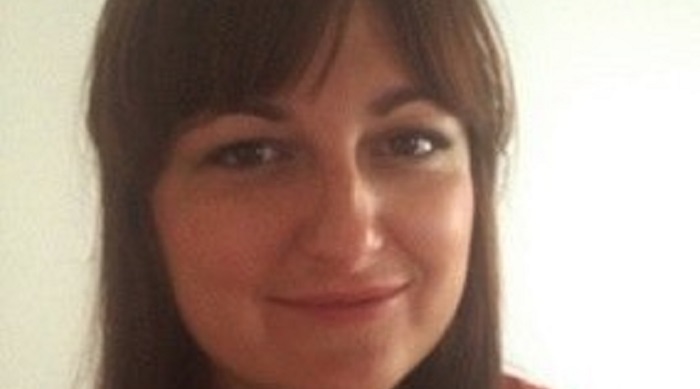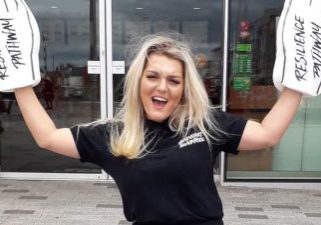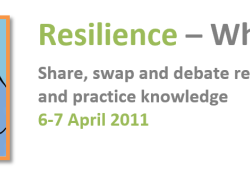Boingboing blogs from… the Resilience Forum!
Challenges in conceptualisation and operationalisation of Family Resilience – Ivana Maurović, Brighton Resilience Forum – Thursday 2 February 2017
by Angie Hart, Boingboinger
An extra special Resilience Forum today, and it’s an early evening slot. Today we’ve got Ivana Maurović from the Faculty of Education and Rehabilitation Sciences at the University of Zagreb giving a talk. She’s over here working with us on our mutual resilience research. Challenges in conceptualisation and operationalisation of family resilience is the catchy title of her talk.
Ivana’s English is brilliant and she starts off in a similar way to many Resilience Forum speakers. She’s starting with the concept of resilience, and in particular the concept of family resilience. Ivana discusses the five waves of resilience research that we’ve written about at Boingboing. I’m really interested to hear how she connects her thinking on family resilience to our Boingboing resilience ideas. We’re keen on resilience research connecting with activism. How does that work with families I’m wondering?
I’m also wondering how she relates her family resilience concept to wider community resilience concepts. We have a little chat about that issue. Suna, one of our Boingboing researchers, talks about how family resilience is very much a concept that fits within a systems perspective, as does community resilience. She’s thinking back to the last Forum on resilience and systems, I’m sure. Take a decko at the slides from that Forum if you want to see what happened at that one.
One of the challenges Ivana and colleagues have had with their research is how to measure family as a system and not a sum of individuals. Do they go for a consensus where all members of the family decide? Or do they decide in other ways?
We get on to ethical issues of Ivana’s research and compare what they are doing with some research being undertaken by one of our fabulous postgraduate students, John Ling. He’s doing research on children’s resilience, but within a family context, and he’s using an approach called Q Sort. Take a look here at Suna and colleagues’ Q Sort work on the Resilience Framework.
We diverted to a long debate about the definition of resilience and whether it is a process or an outcome. My fault. I wanted to give Ivana the opportunity to hear Suna’s little lecture on this coz she has a very well-informed perspective on how it is absolutely a process concept, and I just love listening to it even though I’ve heard it loads. Suna thinks very strongly that trying to measure resilience as an outcome is conceptually ridiculous and we had a good old chat about that.
Ivana puts up the Family Resilience Framework that our colleagues in Wales from Newport Mind have developed. They have built on our original Resilience Framework to produce a family version of it and have also developed some useful resources on how to use it.
In Croatia supporting children who have difficulties is still very often in accordance with a medical model where individual children get ‘treated’ quite separately, and not as part of a family orientated approach.
Ivana and her colleagues are just at the beginning of their research so they are still working out exactly what they are going to do. I’m so keen for them to ensure that they come at their research with a thorough inequalities imagination. By that I mean that they really keep in mind that families are part of a wider social system and that they are living in particular socio-economic circumstances often beyond their control. And what then does that mean for the concept of family resilience and how they are going to conduct the research? And for whether or not parents and family members get involved beyond being traditional research ‘subjects’.
Looking forward to seeing her at a future Forum once they’ve done the research so we can see what happened. Thanks so much for coming to hang out with us Ivana. You were fab to have around and great to see you in action at our Forum. See you at your conference in May. Can’t wait!


